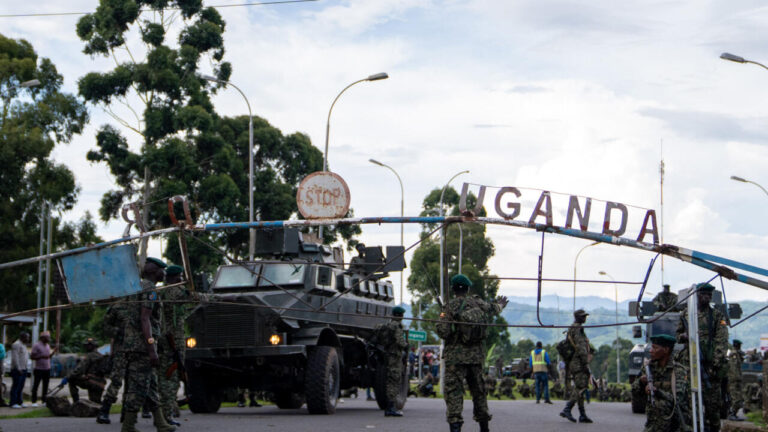Issued on:
Ugandan troops operating as part of an East African regional military force entered the east DR Congo border town of Bunagana on Friday, an army officer and witnesses said.
The soldiers are intended to supervise the gradual withdrawal of the M23 rebel group, which has conquered swathes of territory in eastern Congo since taking up arms again in late 2021.
The Ugandan contingent of the East African Community (EAC) force entered Bunagana on Friday morning, according to the force commander, Kenyan General Jeff Nyagah.
He explained to reporters on Friday that about 1,000 Ugandan soldiers had crossed into the town — which lies on the Ugandan border — as part of a contingent that is expected to eventually comprise 2,000 troops.
A Bunagana resident also told AFP that Ugandan troops had entered the town, with vehicles and tanks.
On Thursday evening, Ugandan President Yoweri Museveni stated that the troops are not due to fight the M23.
Rather, they will “occupy some of the positions that the M23 has handed over to the East African Force as a neutral force”, he said.
The seven-nation EAC decided last June to create a military force, with the aim of stabilising eastern Congo, which has been plagued by armed groups for decades.
The M23 first came to international prominence in 2012, when it captured the eastern Congolese city of Goma before being driven out.
But the Tutsi-led group re-emerged from dormancy in late 2021, arguing that the government had ignored a promise to integrate its fighters into the army.
It went on to capture large chunks of North Kivu province and displace hundreds of thousands of people, and has come close to surrounding Goma.
March 30 was supposed to mark the end of the withdrawal of “all armed groups”, according to a timetable adopted in mid-February by the EAC. The deadline was not respected.
Kenyan General Nyagah said that the M23 withdrawal would be “sequenced”.
The Democratic Republic of Congo accuses its smaller neighbour Rwanda of backing the M23, which the United States, other Western countries and independent UN experts agree with, but Kigali denies.
(AFP)



